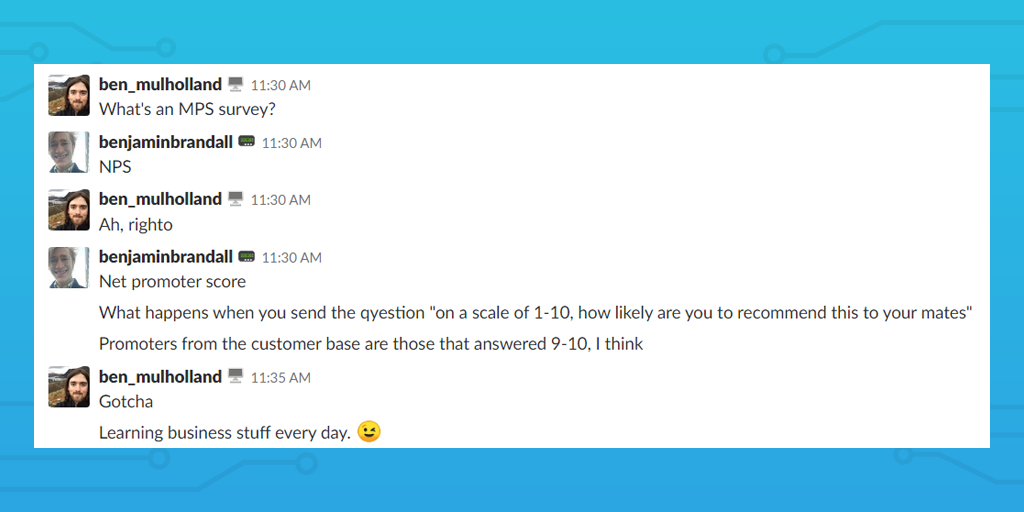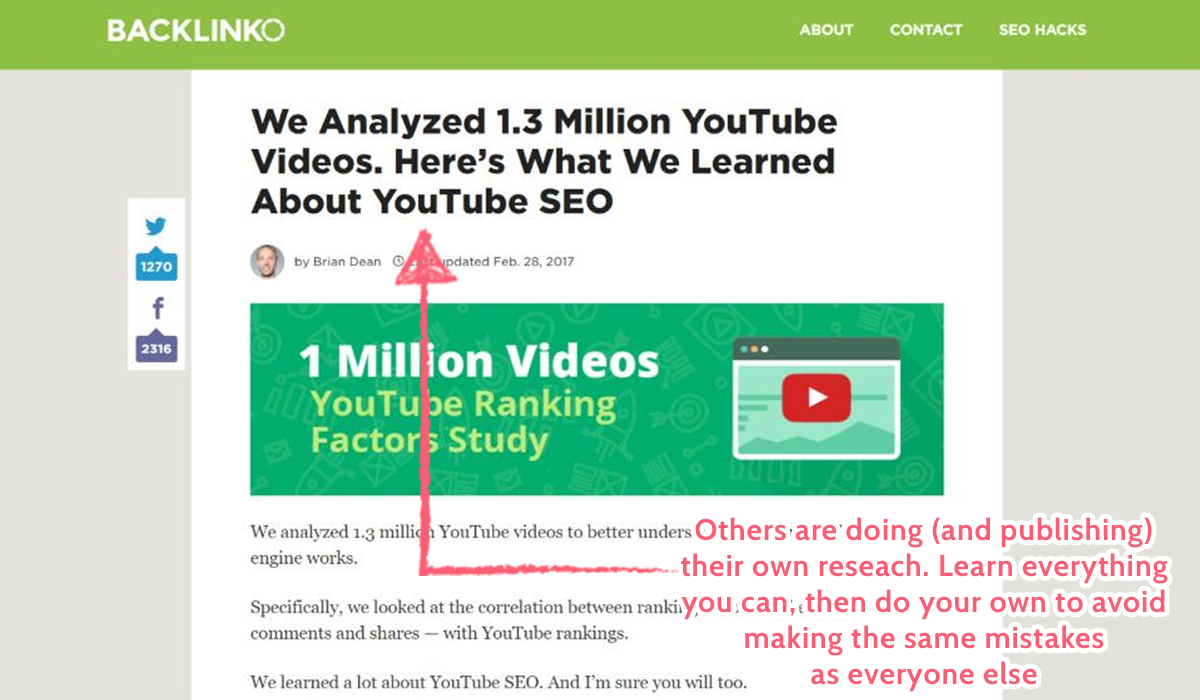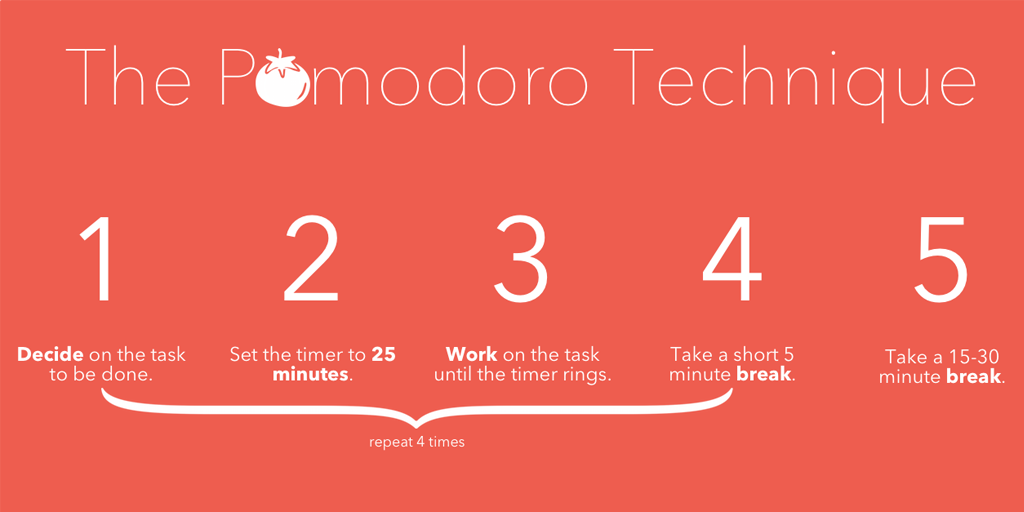
“A jack of all trades is a master of none, but oftentimes better than a master of one” – Haley Marie Craig, 7 Phrases You’ve Been Misquoting
Sometimes, you don’t need to be a specialist – just someone who’s flexible enough to weave between disciplines and bring the strengths of all.
A full stack marketer.
These are marketers who have knowledge and experience of all aspects of marketing, from social media and video to user experience and content. It takes a lot of dedication and consistent learning to become one, and it’s often hard to find someone who has that wide of a spread of knowledge.
So, if you’ve ever wanted to brush up your marketing skills, know what the pros and cons of a full stack marketer are, or wondered why you’d bother to hire a non-specialist in the first place, keep reading this post. I’ll cover all of that, plus give a list of helpful resources which can get you started on the track to gaining that knowledge for yourself.
Let’s get started!
What is a full stack marketer?
A full stack marketer is someone with experience and knowledge spanning the entire marketing “stack”. They might specialize in a certain discipline but should be able to understand and work with whatever project they’re assigned to.
Now, it’s important to note that “full stack” doesn’t mean they know everything.
On the contrary, it’s usually a term reserved for those who have some experience with everything relevant to your operations but who isn’t necessarily a master of any of them.
This usually means that they have a basis in:
- Writing/storytelling
- Blogging
- Research
- Social media
- Public relations
- Data gathering/management (A/B testing, etc)
- Analytics
- Landing page optimization
- CTA optimization
- Growth hacking
- Design/user experience
- Branding/positioning
- Copywriting
- Customer support/success
- HTML (mainly for WordPress)
- Funnel marketing
- Content marketing
- Video marketing
- Email marketing
- Mobile marketing (app store, etc)
- Paid marketing (PPC, etc)
Basically, it’s someone who can adapt to whatever the situation calls for without having to learn the basics of an entirely foreign discipline or technique. This tends to result in extremely flexible employees who can jump between projects and teams without too much trouble.
Why should you care?

Full stack marketers are the epitome of “jack of all trades, master of none”.
In smaller teams, this breadth of experience can even result in the marketer performing several roles at once due to the lack of a specialist. There’s little point in hiring a dedicated video marketer if all you need are a few short clips for your knowledge base.
This advantage also belies the main flaw of full stack marketers – breadth of experience doesn’t equate to depth or quality of knowledge. They might know the basics of video marketing but there’s little chance they could run a successful campaign from start to finish.
That’s not to say that a full stack marketer can’t also specialize in a given field, however. In fact, having a base knowledge of everything related to their main field can enhance their operations and inspire them to work better and more harmoniously with other teams in mind.
For example, someone who’s fantastic at copywriting but awful at SEO would need their work to be edited to accommodate a given keyword. A full stack marketer who specializes in copywriting would be able to produce a similar quality of writing but could likely work the keyword and optimization strategy naturally into their work as they go.
It’s largely impossible to say whether full stack marketers have solid pros and cons compared to more specialized workers, as this entirely depends on the project at hand, the team they’re working in, the experience of other team members, and so on.
However, in general, think of them as being better in smaller teams and those which require either a lot of collaboration or flexibility in their employees.
In smaller teams, they can fulfill several roles to a satisfactory level without the need for specialists, and their wide knowledge can allow them to perform almost any marketing tasks available with little extra background knowledge required.
Where do you find them?

Full stack marketers are mostly found in startups due to the nature of their teams. Startups usually consist of small teams who fulfill may roles, as they are much smaller while having to perform many of the same operations.
This naturally encourages teams to diversify their skills in order to effectively keep up the pace. Working at a startup can be brutal but it’s hardly dull with new projects and tasks being assigned every time the team grows.
Take my own experience with Process Street, for example. While I’m hardly a “full stack” marketer, I started this job with nothing but a degree in History and a basic understanding of what WordPress was. I’ve got a long way to go, but in the three years since I’ve gained knowledge and experience with (among other things):
- Research
- Process management and documentation
- User design and experience
- Funnel marketing
- Video marketing (to a lesser degree)
- Customer success and support
- Analytics
- Data management
- business process automation
If, on the other hand, I’d joined an older company with a larger team, I would have probably been focusing more on core content marketing than learning these other useful elements.
Tips for becoming a full stack marketer
Never stop learning

You’ve got a lot of ground to cover if you want to become a full stack marketer, and it’s fair to say that it can feel overwhelming at times. However, there’s an easy way to make sure that you’re always making progress.
Never stop learning.
Whether you’re reading a book about something you’ve never heard of before, checking out a new (to you) blog’s most popular posts or browsing through a podcast’s library, there will always be something you can do to learn more.
Even if it’s not directly related to a type of marketing, general business knowledge can serve you well in applying what you know in the myriad of situations full stack marketers can find themselves in.
Free courses are a godsend
Who doesn’t love free courses?
They’re a fantastic resource for increasing your knowledge and experience with the various techniques and sub-sections of marketing and a vital part of becoming a full stack marketer. The key is knowing where to go to get the best education.
Let’s be realistic; you mostly get what you pay for. There are some great free courses out there for those on a budget (and I’ll make some recommendations below) but most paid courses will give you a more comprehensive look at the subject the course focuses on.
Having said that, here are a few places you can find some fantastic courses to get you started:
- 14 BPM & Six Sigma Courses You Can Take to Become a Systems Expert – Process Street
- 26 Free Online Marketing Courses: Learn Digital Marketing! – WordStream
- 33 Free Online Marketing Classes to Take This Year – HubSpot
- The 10 best free graphic design courses online – Creative Bloq
- 8 Free Online Customer service courses – Reed
- User Experience for the Web (WebUX) – Open 2 Study
- 12 Free Social Media Marketing Courses to Boost Your Skills Now – DreamGrow
- Free Online Courses in Branding – Class Central
- The Ultimate List of Free Online Classes for Product Managers in 2018 – Kimberly Berls
Do everything you can

Have the chance to go to a conference? Do it.
See a tool that might be useful and has a free trial? Try it.
Don’t know what the best format for your blog posts is? Test it.
Part of being a full stack marketer is having the experience to back up your knowledge, and the best way to get experience is to get stuck in and do everything you have the opportunity to.
Trying new tools can highlight useful strategies, if not give you examples to reference in breakdown posts. Conferences let you learn from leading figures directly and can show you what to prepare for in terms of future developments. Continuous improvement through testing is just plain common sense.
That’s not to say that everything you do has to be work-related, though. Visit locations you’ve never been to before, try out that hobby you’ve always been interested in, and generally try to do new things.
The new experiences are great for coming up with unique ideas, and they’re vital in your efforts to stay motivated and maintain a work-life balance. Speaking of which….
Don’t burn out

I get it; you want to learn it all and there’s almost too much to get through. Why wouldn’t you push yourself as hard as possible to learn what you can and get benefits as soon as possible?
Simple; you’ll crash and burn out.
The damage burning out does is far more significant than any benefits from trying to cram in as much as physically possible. You’ll not only lose motivation to carry on learning but it’ll likely affect your regular output at the same time.
Instead of improving as a marketer, you’ll slow down and find it hard to keep up even your regular workload.
For that reason, don’t overwhelm yourself with the amount you’re trying to do. Keep a book or two on the back burner to pick up when you’re not doing anything. Listen to podcasts when you’re driving or cooking. Attend a conference if you’ve got nothing else on but don’t break a leg trying to make it fit with your plans.
Above all, give yourself time to relax and do things that aren’t work-or-marketing-related.
Trust me, no amount of short-term gain is worth the risk of burning out and needing however many weeks of reduced productivity to recover. Not only will it reflect badly on you in terms of your work, but you’ll probably only feel even guiltier for needing that recovery time than if you had taken the learning process slowly.
Use knowledge and examples from non-traditional sources

While not vital to becoming a full stack marketer, I’ve found that using knowledge, experience, and examples from things outside of your discipline (or even outside of marketing in general) can be a great way to get new insight and make a topic more interesting.
Realistically, there will be at least a few topics you’ll need to learn about which won’t be interesting to you. It’ll be a slog to get through the information. However, if you can find an angle or example from the topic which interests you it can serve as a great way to break through the initial reluctance to getting started.
Take my own work here on the Process Street blog, for example.
We write about anything and everything process-related, which includes a huge number of general business practices and optimization techniques, not all of which are exactly light Sunday reading. From business process automation and client onboarding to to-do list templates and team building activities, we’ll cover it all.
Not all of it is interesting to me at a base level, and having to learn and write about new topics every week can be extremely challenging on the motivational front. So, I find ways to make it interesting.
Little’s law isn’t exactly a party conversation but I got stuck in by discovering how it was used to optimize the production of stealth bombers. Call to action examples are mostly all the same (you can only say “they used contrasting colors” so many times) but I mixed it up by going to my local supermarket and finding physical examples to tie into the subject.
You’re not confined to use the same examples or learning routes as everyone else, so find your own way to make the topics interesting.
Resources for the journey
While I’ve already given a few examples above, I thought I’d list some resources to help you get started on your way to becoming a full stack marketer. These are a mixture of blogs, podcasts, courses, books, and other items which will help you brush up your skills and break into new topics.
Most of these resources speak for themselves (and this post is already pretty chunky) so I won’t go into detail with each example. I will, however, say what type of resource each item is and separate them into rough categories to help you out.
I’ll also be covering only the core marketing disciplines – these resources are a fantastic basis to use to become a full stack marketer, but you’ll also have to take some initiative and go further with some techniques which require a more hands-on approach. For example, you’ll need to gain customer support experience yourself.
Let’s get started on building that knowledge library!
Writing/storytelling
- Grammarly – spellcheck on steroids, and it’s completely free
- Hemingway Editor – a no-nonsense app that cuts the fat out of your writing
- The Blogger’s Guide to Telling Stories That Win Hearts and Minds by Alex Limberg – a great summary of why storytelling is important and what to do
- How To Write Well: 10 Essential Self-Editing Tips by C. S. Lakin
Blogging
- ProBlogger – a fantastic blog with tips and techniques for new and experienced bloggers alike, focusing particularly on making money through blogging
- Copyblogger – another great blog for bloggers, they also run a program where you can become a certified content marketer, thus proving your worth in that discipline
- WordPress – the standard platform for most blogs, and one that you’ll inevitably need to be familiar with
- Introduction to HTML by Codecademy – an introductory course to a language all bloggers and marketers should be able to understand (if only at a basic level)
Research
- Typeform – a fantastic tool for gathering information from your audience through customizable forms
- Social Mention – use this tool to see what people are saying about a topic on social media
- BuzzSumo – a great way to check what current content is popular on a given topic or by/on a certain site
- How We Research: A Look Inside the Buffer Blog Process by Belle Beth Cooper – a great place to start if you’re not sure how to research your blog posts
Social media
- Facebook Audience Insights – use this to get extra information on audience behavior if you’re using Facebook
- Social Media Examiner – one of the best social media blogs in the world, full of useful tips, strategies, and knowledge for social media marketers
- Get Started: Social Media Guide for Small Business by Brenda Barron – a series of posts that does exactly what it says in the title; provide a crash course in social media marketing for the uninitiated
Data gathering/management (A/B testing, etc)
- Airtable – the tool we here at Process Street use to create intelligent spreadsheets which store almost all of our data in interlinked records, making it more powerful than traditional spreadsheets
- Process Street – the perfect way to create processes which are performed more than once to make sure they’re performed correctly, consistently, and efficiently every single time
- Visual Website Optimizer (VWO) – an all-in-one suite for optimizing your website
- Effective A/B Testing by Ben Tilly – a guide to A/B testing
- AB Testing checklist by Process Street – a step-by-step checklist to guide you through the A/B testing process
Analytics
- Google Analytics – if you want to have any idea how well your site is performing, you’ll need to learn how to use Google Analytics
- Google Analytics Academy – learn how to use Google Analytics from the team that brought you it
- Ahrefs – a great tool for analyzing potential keywords, the strength of your competitors’ SEO, and how to improve your own efforts
- Buzzsumo – use this to discover trending or popular content related to a site or topic
Optimization tips
- 15 Landing Page Best Practices to Boost Conversion Rates by Ben Mulholland
- 24 Call to Action Examples in Detail: How to Inspire Action by Ben Mulholland
- I Analyzed the Copy on 87 SaaS Startup Landing Pages — Here’s What I Found – by Ben Brandall
Content marketing
- Copyblogger – a great resource for content marketing tips and techniques
- The Advanced Content Marketing Guide by Neil Patel and Kathryn Aragon – exactly what it says on the tin
- 9 Essential Marketing Tips from the Father of Advertising by Ben Mulholland – key marketing and advertising tips from David Ogilvy; the father of advertising
- The 31 Best Marketing Books to Understand and Reach Your Customers by Adam Henshall – it never hurts to have a list of great books on the go to help you learn more
Email marketing
- How to Find Email Addresses with 92% Accuracy – 9 Email Lookup Tools Tested by Ben Mulholland – when email marketing you need to have a tool which reliably gives you the correct address for your target, so check out this post to see how 9 top tools measure up
- Email Workflows: Best Practices and Examples that Turn Leads into Sales by Josh Brown – learn how to turn email leads into sales with these existing best practices
- The Complete Email Marketing Guide for Beginners by Campaign Monitor – a great place to start if you’re not sure where to begin with learning about email marketing
Remember; a jack of all trades is a master of none
Whether you’re thinking of becoming a full stack marketer or you’re looking to hire one, remember that there’s probably going to be a trade-off for having such wide knowledge. This usually comes in the form of not being as strong as a specialist in their given field.
That’s why startups tend to love full stack marketers – they can adapt to the myriad of roles a smaller team needs to cover while not needing the specialist knowledge because they’re still mostly starting out.
The solution is to have a best-of-both-worlds approach.
Full stack knowledge is useful but only if all of that knowledge will be used. If they’re largely going to be focusing on, say, content marketing, it makes more sense to have a specialist in that field who can then learn the basics of other disciplines and techniques as needed.
If you’re a full stack marketer yourself, consider choosing a sub-section or two which you enjoy or find interesting and doing a deep dive into their techniques. Aim to specialize in those fields while maintaining your knowledge of the other disciplines – it’ll serve you well in selling your abilities and flexibility.
What do you think to full stack marketing? Is it better to specialize or go for both? Let me know in the comments below!







Ben Mulholland
Ben Mulholland is an Editor at Process Street, and winds down with a casual article or two on Mulholland Writing. Find him on Twitter here.